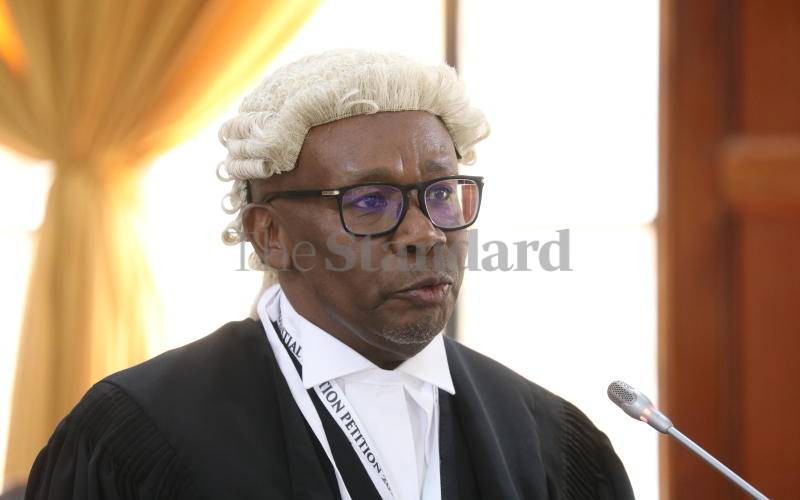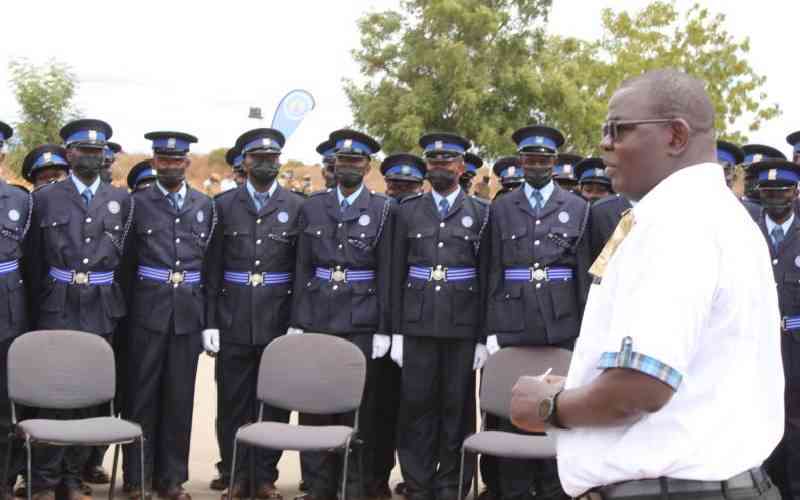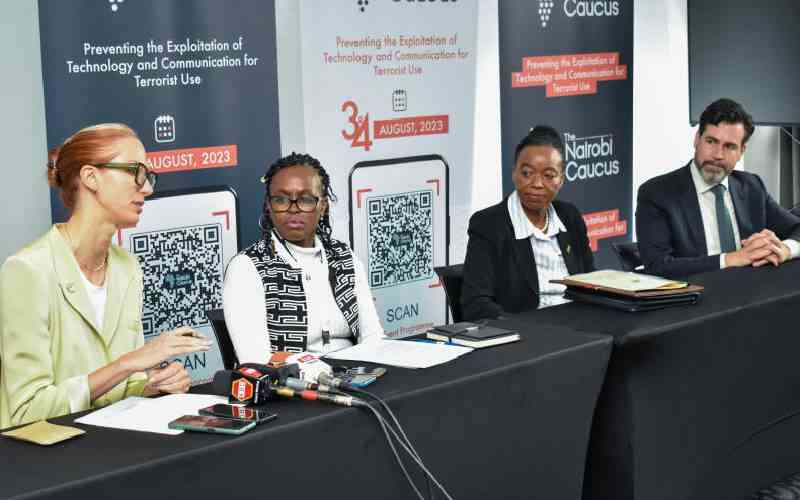 |
|
Attorney General Githu Muigai |
Attorney General Githu Muigai has asked the Court of Appeal to set aside High Court orders suspending eight clauses of the contentious Security Laws (Amendment) Act.
The AG Monday tore into the High Court's decision, saying Justice George Odunga, who suspended the clauses of the Security Laws (Amendment) Act 2014 after CORD challenged it, did not have any jurisdiction to make the decision.
"Justice Odunga did not have jurisdiction. He lacked the powers to hear the matter," the AG told the three judge bench consisting of appellate judges Daniel Musinga, Patrick Kiage and Agnes Murgor.
He said the matter was before a single judge and his conclusion of the matter raises certain points in law.
The AG further said Justice Odunga should not have interfered with a law passed by Parliament and assented to by the President but should have instead made suggestions for review.
His sentiments were supported by the Director of Public Prosecution Keriako Tobiko who told the court that each of the suspended clauses is key for the country's security provision.
"Terrorism is a major problem in the country that has led to the loss of many lives," Tobiko said.
Justice Odunga, Tobiko said, failed to appreciate how important the security law is in fighting crime and insecurity in the country.
But ODM lawyer James Orengo opposed the appeal maintaining that the application should be thrown out as it had been wrongly filed.
Orengo told the judges the documents filed had errors and thus should not be entertained in court.
He said the papers indicated the Supreme Court instead of the Court of Appeal and further indicated the wrong year, 2014, instead of 2015.
"The notice of appeal is defective. The filing process is in breach of the Court of Appeal rules that guide such procedures," Orengo said.
Amendments to the Security Laws (Amendment) Act, he further stated, should be made within the confines of the law.
The AG, however, said a matter should not be thrown out due to technical hitches. He agreed that the document had errors but maintained that was not enough to have the appeal thrown out.
Human error on a court document, he said, does not deny the appellate court jurisdiction to hear the matter.
Stay informed. Subscribe to our newsletter
Justice Musinga said the court would deliver its ruling on January 23.
Monitor communication
Earlier this month, Justice Odunga suspended eight clauses of the security law among them one that amended the Public Order Act and made it mandatory for people to seek police permission before publishing images of terrorism victims.
Also suspended is a clause that gave the National Intelligence Service powers to monitor private communication and "authorise any member of the Service to obtain any information, material, record, document or thing" considered a threat to national security.
A law restricting the number of refugees entering the country and making it more difficult for them to be granted asylum was also suspended pending hearing and determination of the main petition.
Amendments to the Registration of Persons Act grants the Principal Registrar of Persons enhanced powers to revoke registration.
 The Standard Group Plc is a
multi-media organization with investments in media platforms spanning newspaper
print operations, television, radio broadcasting, digital and online services. The
Standard Group is recognized as a leading multi-media house in Kenya with a key
influence in matters of national and international interest.
The Standard Group Plc is a
multi-media organization with investments in media platforms spanning newspaper
print operations, television, radio broadcasting, digital and online services. The
Standard Group is recognized as a leading multi-media house in Kenya with a key
influence in matters of national and international interest.
 The Standard Group Plc is a
multi-media organization with investments in media platforms spanning newspaper
print operations, television, radio broadcasting, digital and online services. The
Standard Group is recognized as a leading multi-media house in Kenya with a key
influence in matters of national and international interest.
The Standard Group Plc is a
multi-media organization with investments in media platforms spanning newspaper
print operations, television, radio broadcasting, digital and online services. The
Standard Group is recognized as a leading multi-media house in Kenya with a key
influence in matters of national and international interest.









